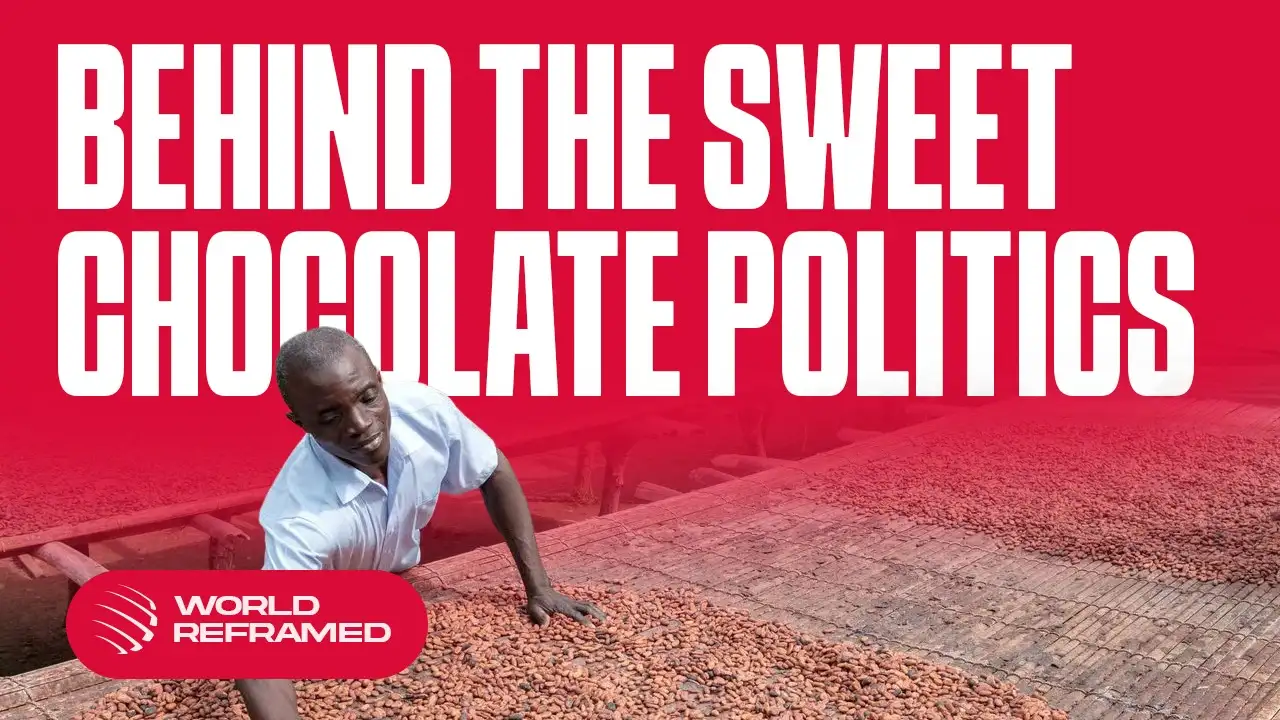Chocolate Politics: How Africa feeds the world but eats the least [WR19]

Chocolate is more than a sweet treat. It is a global political and economic force. Worth over USD 150 billion, the chocolate industry is shaped by power imbalances between producing countries in the Global South and consuming nations in the Global North.
While rich nations dominate processing, branding, and profits, smallholder farmers in Africa who grow the bulk of the raw cocoa earn only a fraction of the value.
The giant behind the cocoa supply
Africa produces over 70% of the world’s cocoa, with Côte d’Ivoire and Ghana leading global supply.
- Côte d’Ivoire alone contributes about 40%.
- Ghana adds another 15–20%.
- Nigeria and Cameroon also play influential roles.
Yet despite this dominance, Africa captures less than 5% of the global chocolate market value. Most of the wealth is made after cocoa leaves African shores through processing, branding, and retail.
Why Africa eats the least chocolate
Despite being the world’s largest cocoa source, chocolate consumption in Africa remains extremely low:
- The average African consumes less than 0.5 kg of chocolate per year.
- By contrast, Europeans consume 7–10 kg annually, with Switzerland topping the chart at over 11 kg.
Reasons include affordability, limited local processing, low exposure, and the fact that chocolate has historically been marketed as a luxury import rather than a locally crafted product.
The world’s best chocolate
In a surprising twist, Peru was recently awarded the title of “World’s Best Chocolate” in global competitions such as the International Chocolate Awards and the Salon du Chocolat recognitions. Peru produces far less cocoa than West Africa, around 2% of global supply, but has invested heavily in:
- Fine-flavour cocoa varieties
- Local artisanal processing
- International branding and chocolate tourism
By controlling more of the value chain, Peru has achieved what many African producers aspire to: global recognition for premium chocolate, not just raw cocoa.
The politics of value chains
The chocolate industry remains shaped by colonial trading patterns:
- Africa exports raw beans.
- Europe and America process and sell premium chocolate.
- The real profits from a 1000% markup between cocoa farmgate prices and retail chocolate bars flow to global corporations.
Efforts by Ghana and Côte d’Ivoire to impose a Living Income Differential (LID) show the struggle for fair pricing and better livelihoods for farmers who remain among the poorest in the agricultural sector.
Reframing the future
The future of chocolate depends on shifting power:
- Local processing in Africa
- Stronger branding of African chocolate
- Fair pricing for cocoa farmers
- Trade reforms that reward producing countries
- Investment in premium varieties and local markets
As chocolate continues to shape global tastes and economies, the question remains: Will Africa continue feeding the world or begin feeding itself?
Click here to watch our previous episodes
World Reframed is produced in London by Global South World, part of the Impactum Group. Its editors are Duncan Hooper and Ismail Akwei.
ISSN 2978-4891
This story is written and edited by the Global South World team, you can contact us here.